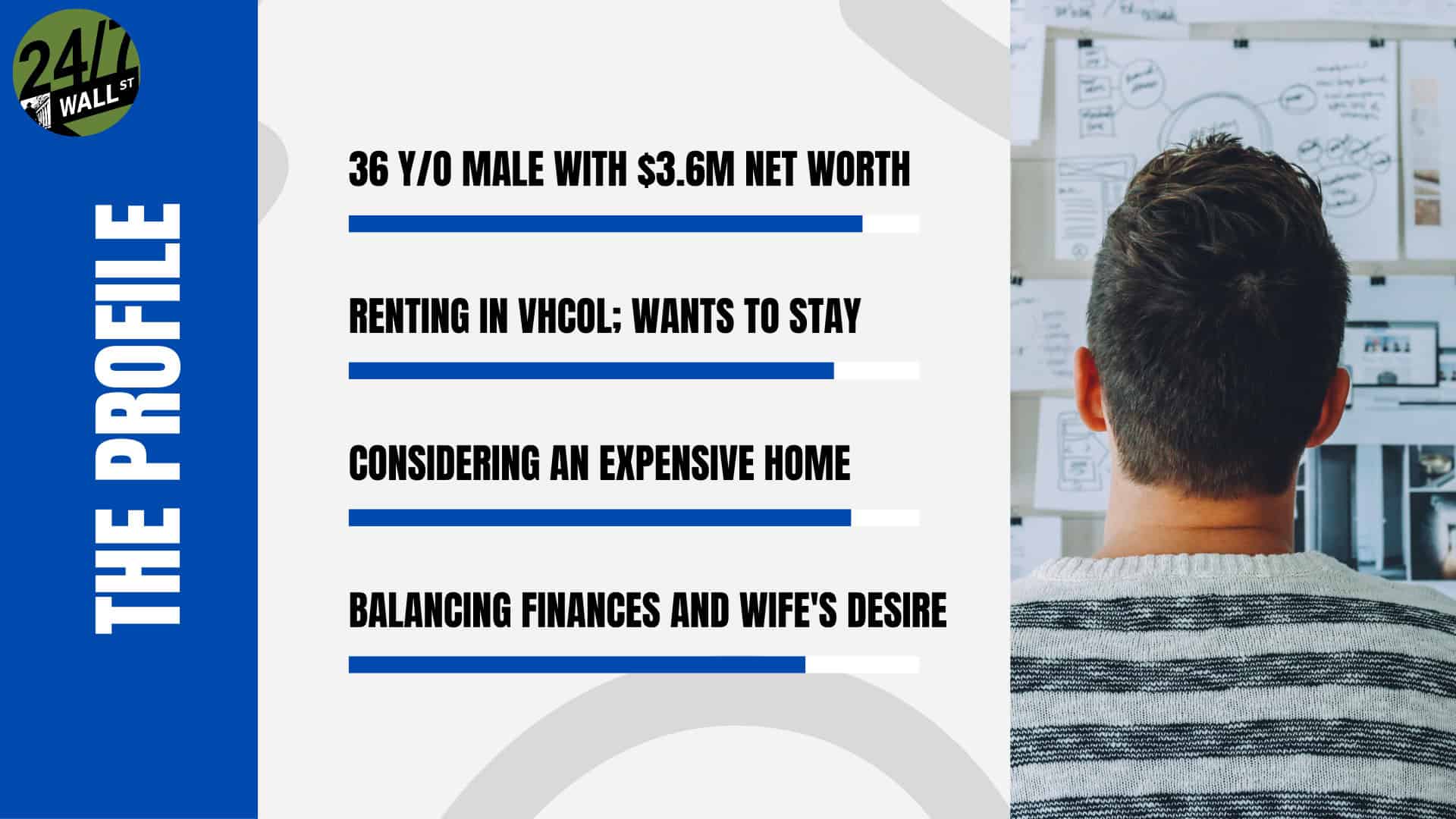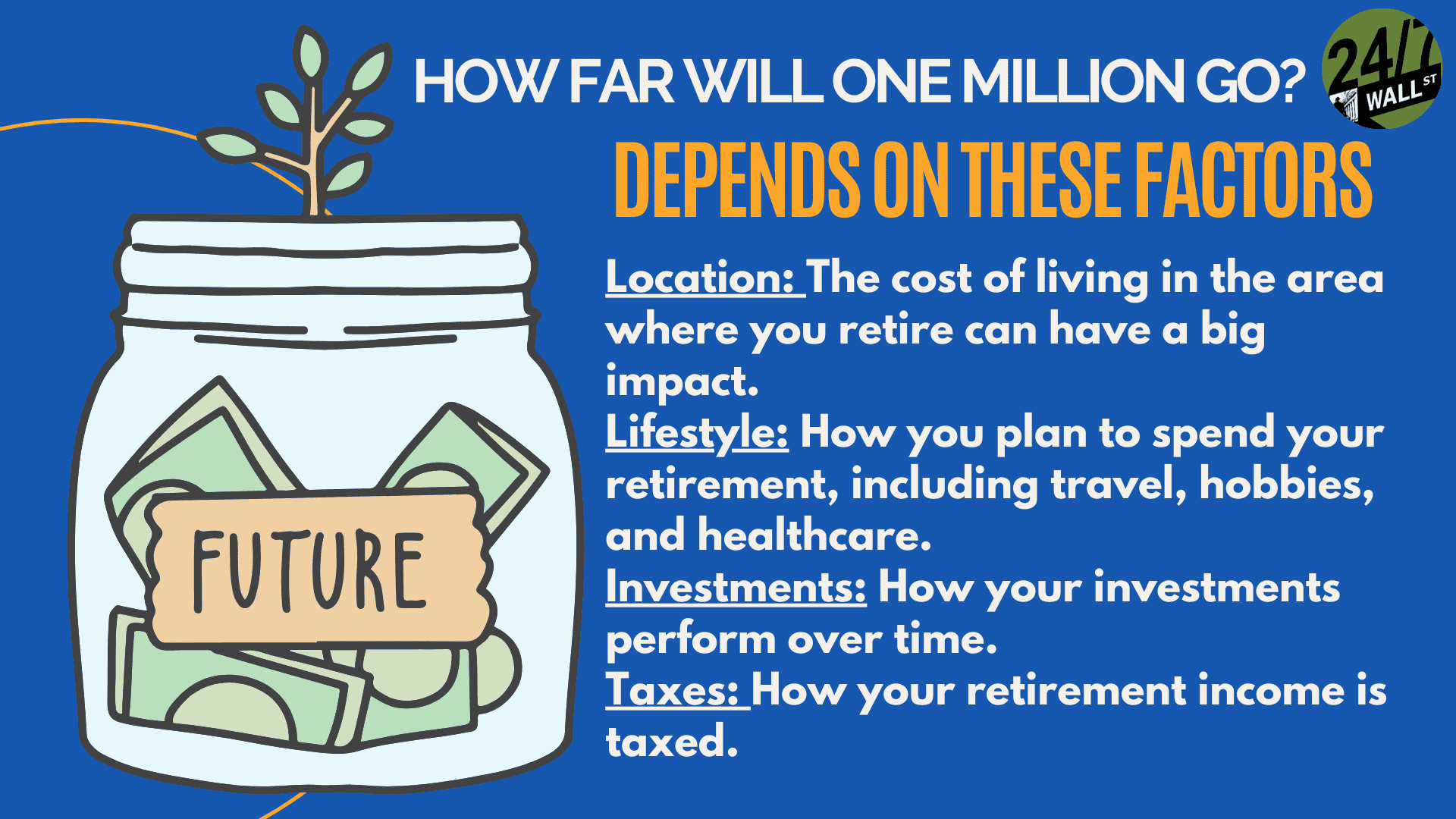Personal Finance
I'm 36 years old and have $3.6 million but I still rent - is it crazy to plow most of my money into a house?

Published:
Last Updated:

Something we can all hope to dream of in our wealth scenario is to stop working by the time we turn 36. This is exactly the scenario for this Redditor in r/fatFIRE, who, at 36 years of age with a young family, has already accumulated a net worth of $3.6 million.
While this would typically be an envious position, the scenario here is rather peculiar as he and his family do not own a home. Instead, they have been renting in an area with a very high cost of living and are now considering using a large percentage of their net worth to buy a home.
What I like most about this post is that it’s a real scenario debating the pros and cons of home ownership versus renting.

In this scenario, we have a traditional subscriber to FIRE (Financial Independence and Retire Early) who, by 36, was able to retire with a net worth of $3.6 million. As the family lives in an area with a high cost of living, they are paying approximately $7,000 monthly for rent. The Redditor’s wife worries that the family is unstable as they rent and must deal with the uncertainty of living under a landlord.
Instead, the wife wants to take the family’s net worth, composed of bonds, stocks, and money made from a company exit, and put around 60% or roughly $2.2 million into a home. The concern voiced by this Redditor is that by using up a considerable portion of their worth now, they will have compounded far less money 15-20 years down the road.
It’s also important to note that neither spouse works, although they plan to return to work. The wife is currently in a pre-revenue position with a new business, and the Redditor is considering starting something new or consulting. Neither wants to rejoin the corporate world to make ends meet with their anticipated $6,000 monthly expenses.

Ahead of the recommendation, it’s important to note that banks won’t give a $2 million mortgage or even a $1 million mortgage to someone without income. On the other hand, they live in a country where healthcare is free, public schools are good, and higher education doesn’t cost a fortune.
With these caveats out of the way, spending $2.2 million of a total net worth of $3.6 million on the house seems ill-advised. While I am not a financial advisor, I can do back-of-the-napkin math and understand that this seems like a bad idea without any income.
This conversation exists around putting over $2 million into an asset that may never provide any return. While the hope is that home value always increases, they could lose money on the home down the road. It just doesn’t sound like a reasonable thing to do.
On top of that, they are already having trouble keeping up right now. Even with this considerable net worth, they are spending enough that they could run out of money at some point. Ultimately, they will run out of money when you consider a mortgage, insurance, property taxes, etc., on a $2 million home.
The idea that two unemployed people would look to spend over $2 million on a home seems like they are setting themselves up for a world of hurt. I can’t say I agree with the wife’s idea that “what’s the point of having money if you don’t have a roof,” which is a tough pill to swallow when you struggle to keep that roof over your head.
So, two scenarios here seem to be able to play out. The first is to move to a less expensive neighborhood that doesn’t require a $2 million home investment. The second is to return to the workforce in whatever capacity, so there is a growth rate associated with their net worth, and once your finances are stable, buy a home.
Retirement planning doesn’t have to feel overwhelming. The key is finding expert guidance—and SmartAsset’s simple quiz makes it easier than ever for you to connect with a vetted financial advisor.
Here’s how it works:
Why wait? Start building the retirement you’ve always dreamed of. Click here to get started today!
Thank you for reading! Have some feedback for us?
Contact the 24/7 Wall St. editorial team.